The Australian Health Ethics Committee (AHEC) is charged with offering advice on ethical issues regarding human health and to develop guidelines for human research.
One of the Chief Executive Officer's (CEO) functions under the National Health and Medical Research Council Act 1992 (NHMRC Act) is to inquire into, issue guidelines on, and advise the community on ethical issues relating to health. This function includes the issuing of human research guidelines. Under Section 10(2) of the NHMRC Act, the NHMRC Council may only provide human research guidelines to the CEO under Section 9(1) precisely as developed by AHEC.
Functions
The functions of AHEC, as set out in Section 35(3) of the NHMRC Act, are:
- to advise the Council on the ethical issues relating to health
- to develop and give the Council human research guidelines under subsection 10(2) of the NHMRC Act
- any other functions conferred on the Committee in writing by the Minister after consulting the CEO
- any other functions conferred on the Committee by the NHMRC Act, the regulations or any other law.
In the course of its activities, AHEC consults extensively with individuals, community organisations, health professionals and governments, and undertakes formal public consultation when developing guidelines. AHEC may also provide advice on international developments in health ethics issues.
Membership
AHEC's composition is specified in the NHMRC Act. Members draw on expertise in philosophy, the ethics of medical research, public health and social science research, clinical medical practice and nursing, disability, law, religion and health consumer issues.
Under Section 36(2) of the NHMRC Act, there must be included among members of AHEC individuals who collectively have membership of all the other Principal Committees.
Past Members
- Members of AHEC 2021–2024 triennium
- Members of AHEC 2018–2021 triennium
- Members of AHEC 2015–2018 triennium
Committee members 2024–2027
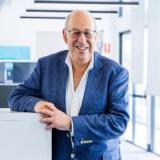
Chair,
Associate Professor
Stephen
Adelstein
Member with expertise in professional medical standards
Stephen Adelstein is a Clinical Immunologist and Allergist and an immunopathologist at the Royal Prince Alfred Hospital, Sydney where he also undertakes research in the development of novel tests for immune-mediated disorders. He is one of the inaugural Co-Directors of Institute for Academic Medicine at the Hospital. He completed his term as a practitioner member of the Medical Board of Australia and Chair of the Steering Committee and the Consultative Forum of the Medical Training Survey of the Board in 2024, has served as a member of the Australian Health Ethics Committee for 6 years and has also been a Director of the Royal College of Pathologists of Australasia and Chief Examiner for their Fellowship program in Immunopathology and Principal Examiner for the Faculty of Science of the College.
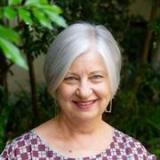
Senior Professor
Annette
Braunack-Mayer
Member with knowledge of the ethics of medical research
Professor Braunack-Mayer's research, teaching and community service combines rigorous and robust social and ethical analyses of health systems, policies and practices with the views and experiences of community members. Annette is passionate about ensuring that the experiences and views of members of communities contribute to health services, policies and systems. She has brought this commitment to bear in every research, teaching and service activity in which she engages, leading to strong relationships and a familiarity with needs across diverse communities and service providers.
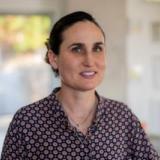
Dr
Laine
Chilman
Member with expertise in nursing and allied health practices
Dr Laine Chilman is a Lecturer and dedicated researcher in occupational therapy at the School of Health, University of the Sunshine Coast. Holding qualifications in nursing and occupational therapy, she has worked clinically in the United Kingdom and Australia.
Dr Chilman’s primary research focuses on interventions that optimise outcomes for children by supporting parents and caregivers. Her work emphasises a strong dedication to co-design with Aboriginal and Torres Strait Islander communities and a lived experience perspective.
Dr Chilman’s contributions to research have been recognised with awards such as the Occupational Therapy Australia QLD division postgraduate student award (2021) and the 2024 recipient of the Vice-Chancellor and Presidents Award for Excellence in Research Impact (Early Career Academic) from the University of the Sunshine Coast.
In addition to academic practice, Dr Chilman oversees undergraduate and postgraduate research.
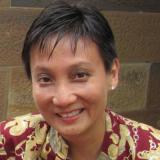
Dr
Yvonne
Ho
Member with understanding of health consumer issues
Dr Yvonne Ho is a specialist radiologist who has extensive experience in both the public and private sectors.
As a medical doctor in her field of specialty, her background is in imaging diagnosis and treatment of diseases via cutting-edge, non-invasive techniques, to ensure patient quality of life is maintained. She has international research experience, and was also pivotal in introducing PET-CT imaging to Singapore.
Her current research is in Bioethics of AI with an international consortium headed by the Australian Institute of Machine Learning.
Dr Ho is the first Victorian, as well as first Australian woman of Asian heritage to be dually qualified as a radiologist and nuclear medicine specialist, both male-dominated medical specialties. She is the first woman Board Director of the Royal Australian and New Zealand College of Radiologists.
In organisational governance, Dr Ho represents the Australian Government at the OECD’s International Expert Group on Artificial Intelligence (AI) in Health. She has also served on NHMRC's Consumer and Community Advisory Group (CCAG) since 2022.
In her non-medical life, she co-founded an international IT marketing firm. Her accolades include induction to the Victorian Honour Roll of Women and appointment as a Member of the Order of Australia.
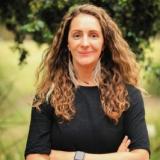
Associate Professor
Michelle
Kennedy
Member with expertise in public health research
Michelle is a Wiradjuri woman. As well as advising on Lowitja Institute’s research and knowledge translation, Michelle is an Associate Professor at the University of Newcastle. Michelle brings 20 years experience working with Aboriginal and Torres Strait Islander communities across community development, social work and health research. Michelle is leading national research in the areas of tobacco control, Aboriginal and Torres Strait Islander health research ethics and Indigenous methodologies.
Michelle holds a PhD in Aboriginal Health, a Master in Social Science (Social Work) and a Bachelor of Arts (hons) from the University of Newcastle.
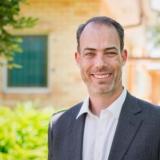
Dr
David
Kirchhoffer
Member with expertise in religion
Associate Professor David Kirchhoffer is the Director of the Queensland Bioethics Centre at Australian Catholic University. He holds a doctorate in the theological ethics from the Katholieke Universiteit Leuven, Belgium. He is also a member of the Faith and Order Commission of the World Council of Churches, for which he is co-moderator of the working group on theological anthropology and moral discernment. His research in bioethics has applied the concept of human dignity to contemporary ethical issues, such as informed consent in research, tissue engineering, biobanking, resource allocation, and religious pluralism in healthcare.
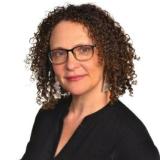
Professor
Emma
Kowal
Member with expertise in social science research
Distinguished Professor Emma Kowal is Professor of Anthropology and Co-Convenor of the Science and Society Network at Deakin University. She is a cultural and medical anthropologist who previously worked as a medical doctor and public health researcher in Indigenous health. Her research interests lie at the intersection of anthropology, science and technology studies (STS), and Indigenous studies. She is an award-winning researcher and educator and a Fellow of the Academy of the Social Sciences in Australia and the Australian Academy of Health and Medical Sciences. She is a member of the ARC College of Experts, Past President of the Society for Social Studies of Science, Graduate of the Australian Institute of Company Directors, and sits on multiple international editorial and advisory boards.

Professor
Jackie
Leach Scully
Member with understanding of the concerns of people with a disability
Professor Jackie Leach Scully is an internationally recognised bioethicist specialising in disability and feminist bioethics. With a background in molecular biology and further training in neurobiology, she held research fellowships at the Ecole polytechnique federale de Lausanne and the University of Basel, Switzerland, before helping to establish the first interdisciplinary unit for bioethics at Basel. In 2006 she joined Newcastle University, UK as Senior Lecturer, becoming Director of Research and ultimately Executive Director of the Policy, Ethics and Life Sciences Research Centre there. In August 2019 she moved to UNSW as Professor of Bioethics and Director of the Disability Innovation Institute, based in the Faculty of Arts and Social Sciences.

Professor
Erwin
Loh
Member with expertise in clinical medical practice
Professor Erwin Loh is President of the Royal Australasian College of Medical Administrators and National Director of Medical Services for Calvary Health Care. He was previously Group Chief Medical Officer at St Vincent’s Health Australia, Australia’s largest not-for-profit health provider, Chief Medical Officer at Goulburn Valley Health, a major regional health service and Chief Medical Officer of Monash Health, Victoria’s largest health network. He has qualifications in medicine, law and management. He is Professor at Monash University, where he leads the Clinical Leadership and Management Unit at the Monash Centre for Health Research and Implementation. He is Honorary Clinical Professor with the title of Professor at the Department of Medical Education, University of Melbourne. He is Honorary Professor at Macquarie University at the Centre for Health Systems and Safety Research.
He is co-editor of multiple books including 'Artificial Intelligence in Medicine' and the 'Textbook of Medical Administration and Leadership'. He has been an invited speaker at local and international conferences, and has published books, book chapters and journal articles on AI and health technology. He is a member of the Association of Professional Futurists, with an interest in medical futurology. He received the Distinguished Fellow Award from RACMA in 2017 for 'commitment to governance, research and publication'.

Professor
Michael
Martin
Member with other expertise relevant to the functions of the committee
Michael Martin is Professor of Statistics in the Research School of Finance, Actuarial Studies and Statistics at the Australian National University in Canberra, Australia. He holds a Bachelor of Science (Hons) degree from the University of Queensland (1986) and a PhD in Statistics from the ANU (1989). He was Assistant Professor of Statistics at Stanford University, USA, from 1989 to 1992 and Annenberg Distinguished Assistant Professor in Statistics at Stanford from 1992 to 1994. He joined the ANU as Lecturer in Statistics in 1994, becoming Professor in 2007, a position he continues to hold. He is an elected member of the International Statistical Institute (ISI), Fellow of the Royal Statistical Society (UK), and has been honoured as a Fellow of the American Statistical Association for his services to research and teaching in Statistics. He is Principal Fellow of the Higher Education Academy (UK), and in 2017, he was selected as an ANU Distinguished Educator.
He has over 75 publications in peer-reviewed journals, publishing extensively in both theoretical and applied statistics, including applications to medicine (in particular breast cancer), population health and environmental science (air pollution mortality). He recently co-edited (with Professor Bruce Smyth and Associate Professor Mandy Downing) The Routledge Handbook of Human Research Ethics and Integrity in Australia, published in late 2024.
His contributions to higher education include as highlights a Carrick Citation for Contributions to Teaching and Learning in 2007, and a Carrick Award for Teaching Excellence, also in 2007, each awarded within the Australian Awards for University Teaching.
He has served on human research ethics committees at the ANU since 2006, as Chair of the Humanities and Social Science Delegated Ethics Review Committee from 2012 to 2015, Chair of the Science and Medical Delegated Ethics Research Committee from 2014 to 2015 and as Chair of the ANU Human Research Ethics Committee from 2015 to 2024.

Professor
Ainsley
Newson
Member with expertise in philosophy
Professor Ainsley Newson is a distinguished bioethicist and Professor at Sydney Health Ethics, University of Sydney. Trained in bioethics, law and science and with over 25 years of experience in the field, Ainsley is an internationally recognized expert on ethical issues in genomics and reproductive technologies. She is also an enthusiastic teacher and mentor for emerging scholars in bioethics.
In her research, Ainsley has addressed the ethical implications of genetics and new reproductive technologies across the lifespan, including newborn screening, prenatal testing, family communication of genetic information and genomic data governance. She is currently leading LINEAGE: a large MRFF-funded project to deliver a governance framework for genomic data in Australia.
Ainsley serves on the Board of the International Association of Bioethics, and is a member of Australia’s Gene Technology Ethics and Community Consultation Committee, the NSW Health Ethics Advisory Panel and the NSW Newborn Screening Expert Advisory Group. She sits on the editorial board of the journals Public Health Ethics and Health Care Analysis.
Professor Newson has authored over 160 refereed publications and influences policy and practice through her extensive research and advisory roles. Her work ensures that genomic and reproductive technologies are implemented ethically, benefiting both individuals and society.
This is Ainsley’s second triennium as a member of the Australian Health Ethics Committee.
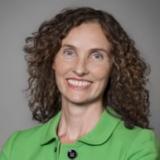
Professor
Michelle
Taylor-Sands
Member with expertise in law
Michelle Taylor-Sands is a Professor in the Melbourne Law School at the University of Melbourne, where she is a Director of the Health Law and Ethics Network and the Master of Health and Medical Law program.
Michelle is an expert in health law and ethics, focusing on reproductive health and the welfare of the future child. She is author of the book, Saviour Siblings: A Relational Approach to the Welfare of the Child in Selective Reproduction. She has published in legal, bioethical and medical journals on prenatal screening, preimplantation genetic diagnosis, donor conception, and trans and gender diverse healthcare for young people. Her relational approach to the welfare of the child focuses on the individual and collective interests a child shares with their family.
Michelle is a chief investigator on an ARC Linkage Grant on non-invasive prenatal testing and a member of the Steering Committee of the Hallmark Initiative on Reproductive Justice. She is an Honorary Fellow at the Murdoch Children’s Research Institute and a sessional member of the Victorian Mental Health Tribunal and Patient Review Panel.
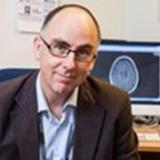
Associate Professor
Mark
Slee
Member with other expertise relevant to the functions of the committee
Associate Professor Mark Slee is a clinical-academic neurologist with high-level experience in clinical neurology, academic neurosciences and medical education as evidenced by his roles as Associate Dean, Head of Medical Science and Technology, Flinders University, Network Head of Neurology, Southern Adelaide Local Health Network (2011–2017), and Associate Dean (MD) Director of the Flinders MD (2012–2015).
At the time of commencement at Flinders in 2006, he was awarded the inaugural NHMRC- MSRA Betty Cuthbert clinical research fellowship in Multiple Sclerosis. He completed his PhD in the mitochondrial biology of Multiple Sclerosis in 2012. He has consolidated local, national and international research collaborations in Multiple Sclerosis/Neuroimmunology and has over 120 scholarly outputs, many in high impact journals such as JAMA (IF 51.47) Nature Genetics (IF 25.45), Annals of Neurology (IF 9.49), Brain (IF 11.81), and Neurology (IF 8.05).
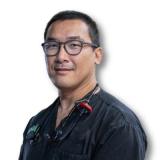
Professor
Viet
Tran
Member with knowledge of the regulation of the medical profession
Professor Viet Tran is an emergency physician, researcher, educator and strong patient advocate. He is founder and director of the Tasmanian Emergency Medicine Research Institute, chair of the Tasmanian Emergency Departments Network, chair of the Australasian College for Emergency Medicine Research Advisory Committee and Discipline lead for Emergency Medicine at the University of Tasmania. Professor Tran has directly cared for over 30,000 patients, striving to deliver excellence in patient care through an evidence-based, patient-centred and data-driven approach. His research, education and advocacy seeks to impact even more people by empowering patients, clinicians and leaders to understand how they can be a positive influence at an individual level, systems level and everywhere in between.
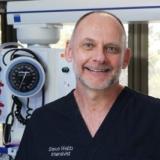
Professor
Steve
Webb
Member with expertise in medical research
Dr Steve Webb is an Intensive Care specialist, a Professor of Critical Care Research at Monash University, Director of Research for St John of God Healthcare, and a former Chair of the Australian Clinical Trials Alliance and the Australian and New Zealand Intensive Care Society Clinical Trials Group. He is a clinical trialist who has been an investigator on trials with an accumulated sample size of more than 60,000 patients. The results from these trials have been incorporated into international guidelines and implemented into practice saving and improving lives. He has experience with Bayesian adaptive platform trials and other innovative designs such as cluster cross-over trials. He chaired the University of Western Australia HREC from 2007 to 2017.